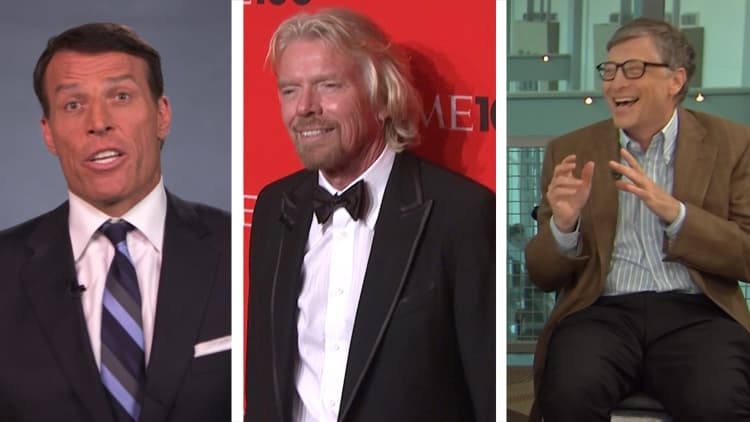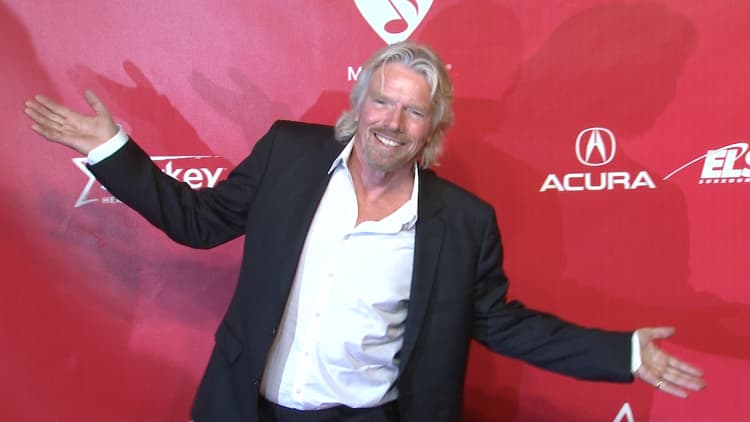Richard Branson believes that what set him apart from other people is also what helped him succeed.
“You should never see being different as a flaw or think that something is wrong with you. Being different is your biggest asset and will help you succeed,” Branson writes in a blog post in which he included a letter addressed to his teenage self. In the blog post, the self-made British billionaire and Virgin Group founder touched on his struggles with dyslexia and the fact that the dropped out of high school at 16.
“I’m often asked how I went from being a dyslexic school drop-out to founding many successful businesses,” Branson writes.
Branson did not take a traditional route to business success. He dropped out of school in the late 1960s in order to launch his first business venture — a youth culture magazine, called “Student,” which he morphed into a successful record selling business after he began selling mail-order records through the publication.
In 1971, he opened a brick-and-mortar record shop in London called Virgin Records. That store eventually became the chain, Virgin Megastores, as well as a record label and the Virgin Atlantic airline, as Branson’s successful venture continued to grow over the following decades and he amassed a fortune that today is valued at $5.1 billion by Forbes.
Even though everything worked out well for Branson, the billionaire entrepreneur still wishes he could go back and offer some advice to his younger self about fulfilling his potential. “Dear Ricky,” Branson addresses himself in the letter, noting the fact that he was “struggling at school” as a teen.
“I know you have problems with reading, writing and spelling and sometimes find it tricky to keep up in class. This does not mean you are lazy or dumb,” Branson writes. “You just think in a more creative way and struggle to find the relevance in school.”

Branson’s advice to himself is to channel the “frustration” he feels at being different than his peers into other pursuits where he can be successful and fulfill his passions.
“Use your alternative ways of thinking to be creative and think bigger. Look around you and see where things aren’t as they should be and try and come up with huge, big solutions that can have a positive effect on people,” he writes.
Of course, thinking big (and outside the box) has worked out well for Branson. He because no other labels wanted to sign an artist named Mike Oldfield who Branson knew and supported. Oldfield’s debut album, 1973’s “Tubular Bells,” went on to sell roughly 16 million copies worldwide, helping Virgin Records become an instant success. Branson later signed other artists like the Sex Pistols, Janet Jackson and The Spice Girls before selling the label for $1 billion in 1992.
Branson is far from the only before becoming a major success, with Microsoft co-founder Bill Gates, Facebook co-founder Mark Zuckerberg and Apple co-founder Steve Jobs among those who never obtained a college degree but went on to change the world and make billions of dollars.
In his letter, published in January, Branson seeks to reassure his younger self that it’s not the end of the world that he did not excel in school, so long as he can “find things that interest you and pursue them doggedly.”
“You might not realise it, but there are many, many other people out there that struggle at school in similar ways to you and many of them have gone on to invent or create wonderful things,” he writes.
Don't Miss:
When Richard Branson started out, he couldn't afford a home—so he bought this instead
Like this story? Subscribe to CNBC Make It on YouTube!


